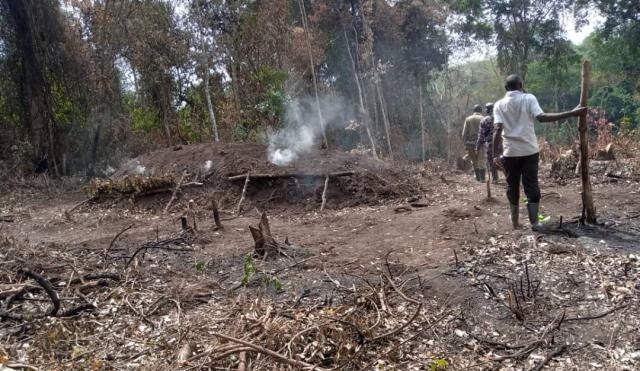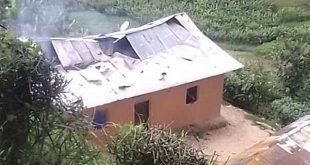
KAMPALA, UGANDA | THE INDEPENDENT | Uganda is losing 122,000 hectares of forest cover annually, according to the Ministry of Water and Environment.
Statistics obtained from the ministry indicate that in 1990, Uganda had 24 percent of forest cover, but due to the escalating illegal activities including deforestation and population growth, that has forced people to encroach on the various forest reserve land to carry out cultivation, this has drastically reduced the forest cover to 12.7 percent currently. The illegal activities are adversely impacting the forest cover in the country.
Hope Asiimwe, the Regional Forest Officer in charge of the Western region in the Ministry of Water and Environment warns that if the trend is not checked immediately, the forest cover in the country will shortly be at a stage.
Asiimwe says, to address the challenges, the ministry has embarked on a massive tree planting campaign with various partners across the country.
She adds that since 2020, the ministry has been able to plant over 74 million trees across the country and calls on Ugandans to appreciate the resource that God has provided them and protect the forest cover and the environment.
To embrace and enhance tree planting to mitigate climate change in the Bunyoro and Buganda sub regions, the East African Crude Oil Pipeline (EACOP) Ltd, the company established to construct and operate the 1,443 km long East African Crude Oil Pipeline, has partnered with the Hoima Catholic Diocese to support the Running Out of Trees (ROOTS) campaign.
The campaign targets the planting of 200 million trees over five years, with 40 million trees to be planted annually, symbolizing one tree for every Ugandan. EACOP has pledged to plant 150,000 indigenous trees in the districts along the pipeline route, and to implement the crucial initiative, EACOP will collaborate with various partners to plant trees on institutional lands, including schools, churches, and land owned by the Bunyoro and Buganda Kingdoms.
The focus will be on indigenous and fruit-bearing trees across the 10 districts hosting the EACOP project. This effort aligns with the company’s commitments under the Uganda Environmental & Social Impact Assessment (ESIA) for the pipeline.
Following the partnership, Hoima Catholic Diocese has contributed 70 acres in Munteme parish, Kikuube district, to embrace tree planting under the initiative.
EACOP has also secured 70 acres from the Registered Trustees of the daughters of Mary (Bannabikira) in Masaka, 100 acres from the Sisters of the Immaculate Heart of Mary in Ggogonya, and another 100 acres from the Buganda Kingdom to plant trees.
John Bosco Habumugisha, Deputy Managing Director of EACOP Ltd, emphasized that trees are essential in combating climate change, improving air quality, conserving water, and preserving soil, while also supporting biodiversity.
This, he says, is a key part of EACOP’s Socio-Economic Investment in environmental sustainability. He appealed to Ugandans to play a role in reducing deforestation and promoting sustainable practices.
Bishop Vicent Kirabo of Hoima Catholic Diocese says, there is fear that oil and gas activities taking place in the Albertine Graben will increase climate change effects through increased greenhouse gas (GHG) emissions and argues that planting of trees and protection of forests are needed to act as carbon sinks of the emissions to avoid or mitigate the negative impact of climate change.
Bishop Kirabo stated that partnering with EACOP Ltd to restore the environment highlights the vital link between economic growth and environmental conservation, noting that, by planting trees, the carbon footprint will be reduced and greenhouse gas emissions and biodiversity will be enhanced and promoted, respectively.
Peter Banura, the Kikuube LCV Chairperson, says the tree planting initiative is crucial during this time when the Albertine and the country at large will be undergoing the production phase of the oil and gas.
****
URN
 The Independent Uganda: You get the Truth we Pay the Price
The Independent Uganda: You get the Truth we Pay the Price



